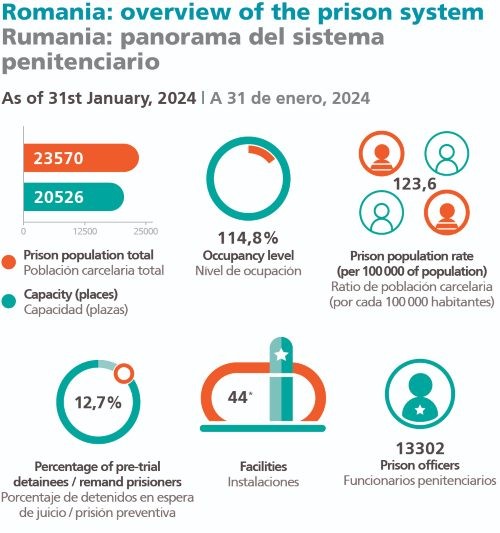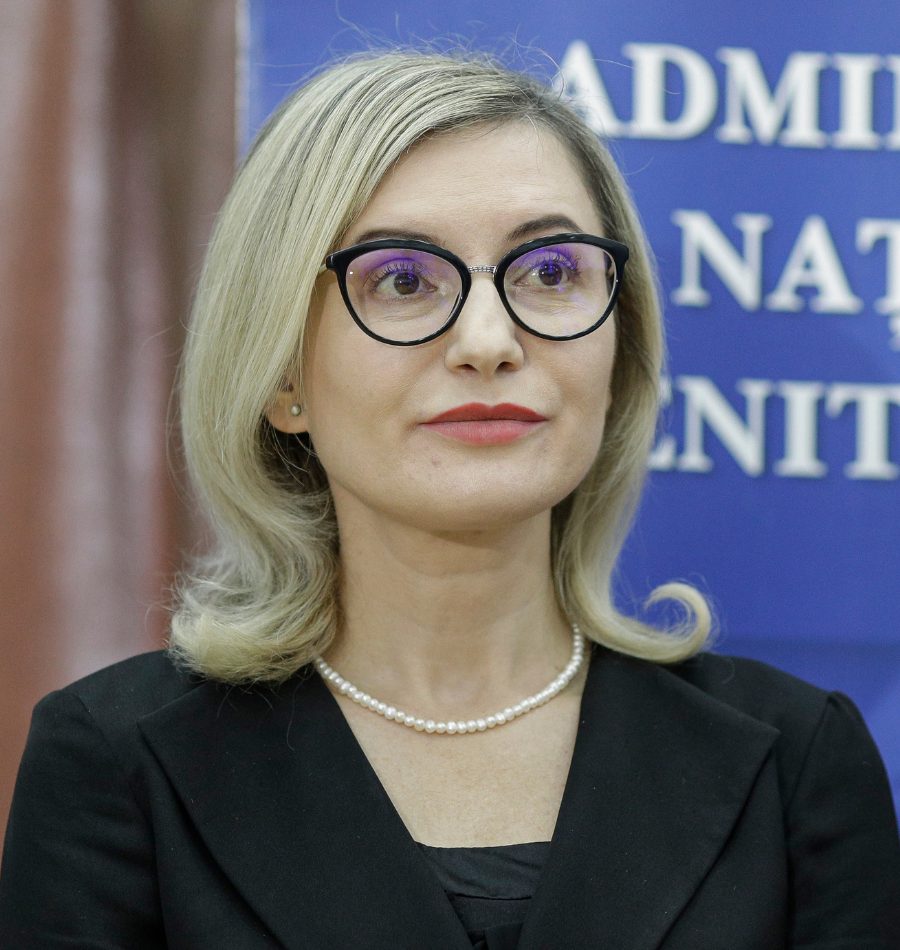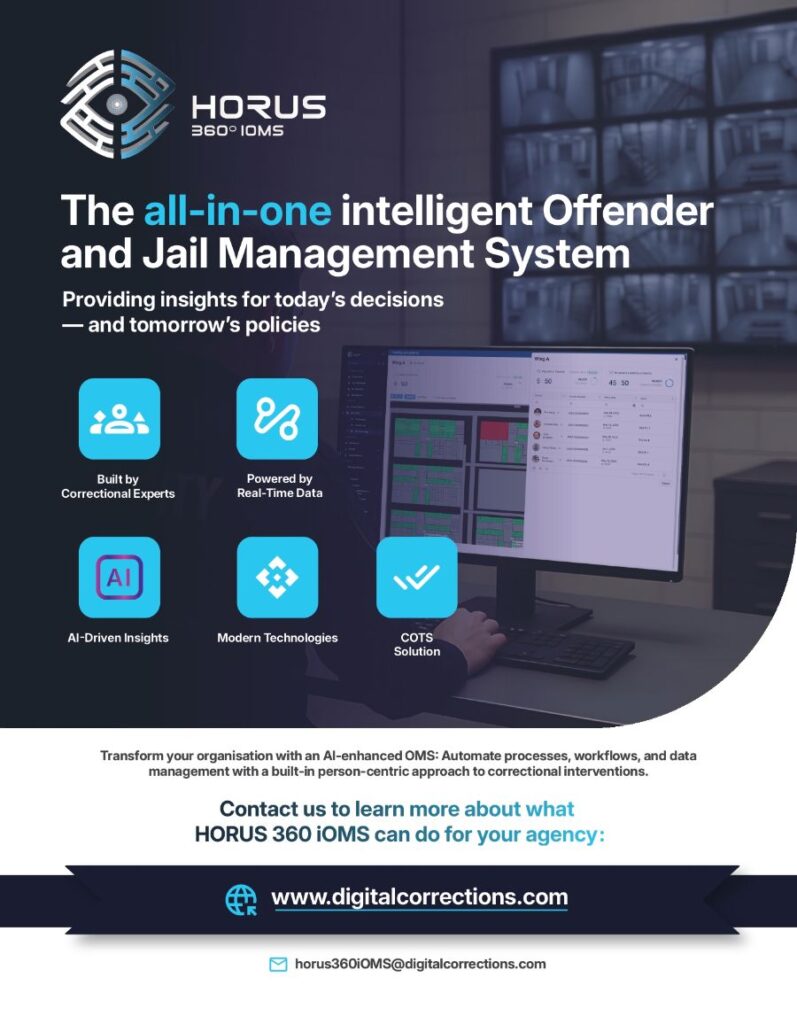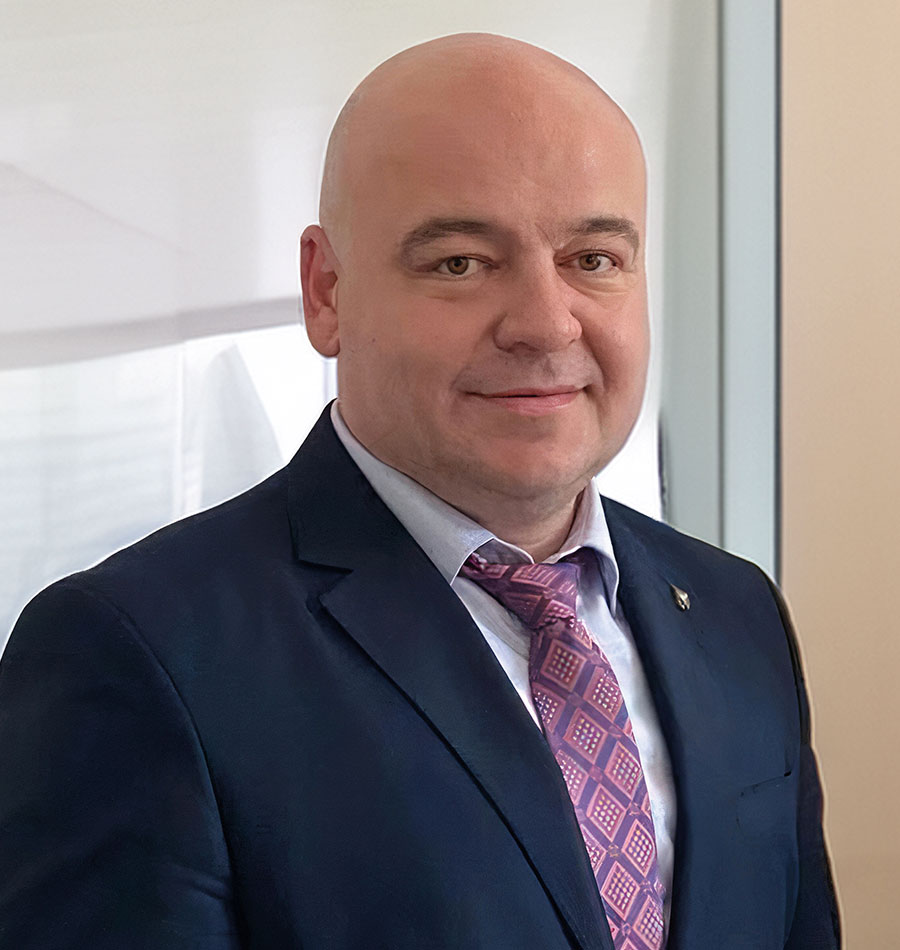Interview
Ioana Morar
Deputy Director-General, Romanian Prison Administration
Dr Ioana Morar is the Deputy Director-General of the Romanian Prison Administration and a key figure in supporting the country’s ongoing shift towards rehabilitation focused correctional services. With a background in psychology and more than two decades of leadership across prison reintegration services, she has significantly contributed to shaping the national strategies and guide system-wide reforms. In this interview, she reflects on Romania’s progress, lessons learned, and the priorities shaping the years ahead.
Looking back over the past years, how would you characterise the evolution of rehabilitation in the Romanian prison service? Which initiatives best capture this rehabilitation-focused shift?
IM: Throughout two decades of experience in the Romanian prison system, I have had the opportunity of witnessing and inspiring the progressive institutional transformation, at all levels. Looking from this perspective, social reintegration is one of the most promising areas of change.
That is why a key priority for us has always been the strengthening of the correctional policies with civic actions, having a broader positive and sustainable impact on society. When thinking about progress in this area, I would mention the steps needed to consolidate the social reintegration approach of the system, by developing and adopting the policies and norms focused on rehabilitation and reducing recidivism.
I have been honoured to be able to commit myself and my professional expertise to serving a greater purpose, that is a better treatment of offenders through developing and putting into practice policies, programs, methodologies and guidelines as well as humanitarian experiences and approaches leading to a stronger long-lasting foundation for positive change. Among the flagship initiatives that have been implemented in the Romanian prison system was the country’s first strategy focused on social reintegration.
The National Strategy for Social Reintegration was a national programmatic approved document that, for the first time, promoted a strong and articulated inter-institutional connecting mechanism, that aimed at ensuring a continuous and effective intervention of all responsible community institutions, during all the stages of the reintegration process. Throughout two consecutive strategic exercises (2015-2019, 2020-2024), this has had an impact on the common interest of these institutions to properly assist people who pose a risk of social exclusion.
Another important step forward was the first regulation dedicated to rehabilitation activities and programs for incarcerated individuals.
This regulation, which came directly from the Ministry of Justice brought together the rules for delivering standardised educational, psychological, and social care activities into one unified regulatory document. These standards and rules are now applied in all prison units as well as in educational or detention centres throughout Romania, helping ensure more consistent support for each inmate. Also, mention should be made about the adoption of an innovative instrument designed to encourage the pro-social behaviour of the persons in custody, that is The Credit System.
This motivational mechanism is based on the psychological conditioning of human behaviour, starting from the premise that direct intervention on motivational factors creates favourable conditions for behavioural changes.

JT: There have been recent investment in research, including an in-depth analysis of the causes of reoffending in Romania (SECURE Project) and the establishment of a structure for study, analysis and research within the Prison Administration (4NORM-ality Project).
What insights would you highlight from this research?
IM: The study conducted within the framework of the SECURE Project, funded by Norway Grants, represents the most recent and comprehensive diagnosis of criminal phenomena in Romania, as well as the most complete set of updated conclusions and recommendations regarding this area of interest.
The analysis under SECURE Project involved a multifaceted methodology for addressing the causes of recidivism, based on three main components: a quantitative survey conducted with 1,300 persons from the prison population and persons who have been released from prison, a quantitative survey based on a national-level representative sample of 1,023 respondents from the general population and a qualitative research based on three pairs of focus groups, with members of several relevant professionals groups and 50 individual interviews.
The achieved results are original and of great national interest. The study revealed a series of conclusions about the profile of individuals who reiterate the criminal behaviour. The most important predictor of criminal recidivism in Romania is the dysfunctional family: 1 in 8 recidivists come from minors for whom a special protection measure, namely placement, was taken at some point; 31% of recidivists had at least one parent with drug or alcohol problems and 26% had at least one parent with a criminal record. School dropout is the second most important factor in determining the risk of recidivism.
According to the results of the Integrated Study on the Causes of Recidivism, half of recidivists are former minors who dropped out of school.
The age of committing the first crime is another important predictor of recidivism, the study showing that 24% of prisoners were deprived of liberty during their minor years and a third of convicts had their first recidivism between 18 and 24 years of age.
Therefore, prevention and early interventions are the ones that can reduce the risk of recidivism. Any crime prevention and recidivism programs in Romania need to target these predictors.
JT: Romania is implementing a new National Strategy of Preventing Recidivism built upon the Social Reintegration Strategy plans ongoing since 2015, and the results from the SECURE Project.
What are the headline priorities of the 2025-2029 strategy, and what
investments will they translate into, over the next four years?
IM: Promoting penal policies that contribute to community safety by reducing reoffending remains an important international priority. As a European State, Romania has strived for aligning its domestic policies with the international recommendations, and has taken an active role in enhancing activities for inmates and strengthening inter-institutional collaboration through the implementation of the National Strategy of Preventing Recidivism.
For the period 2025-2029, the strategic target aims at implementing measures for primary, secondary, and tertiary prevention of recidivism, with extensive outreach. Among the targeted groups, I would mention: minors at risk of conducting criminal behaviours, individuals with mental disorders and substance use disorders, individuals who committed acts of domestic violence, and those sanctioned with custodial or non custodial measures.
Additionally, the strategic document focuses on identifying and developing mechanisms for inter-institutional cooperation, as well as collaboration with social actors, non-governmental organisations, volunteers, and economic operators, in order to facilitate the socio professional reintegration of formerly incarcerated persons.
What strategic measures has the Romanian penitentiary system undertaken to ensure the effective management of mental health issues among persons in custody?
IM: The prison administration is actively involved in nationwide efforts to protect mental health and improve the quality of care for individuals with mental health disorders. Among these efforts, one important initiative is the Action Plan for enforcing European Court of Human Rights decisions concerning mental health (2024–2029).
This plan aims at developing community-based medical and social services and psychiatric medical services at community level, particularly by creating, expanding and modernising outpatient structures. It also comprises measures to improve accommodation conditions and other infrastructure elements, including the ones within the penitentiary system. As part of this, four specialised units for individuals with severe mental disorders have already been established in Botoșani, Baia Mare, Galați and Craiova prisons.
Another important measure is the introduction of a methodology for multidisciplinary activities involving team-based interventions, specifically addressing aggressive behaviours and suicide risk. The conclusions drawn from the theoretical foundation, along with the need to simplify and enhance the efficiency of managing self- and hetero aggressive cases within prison, highlighted the necessity of promoting case management through this new methodology. This contributes not only to prison staff’s direct involvement in managing aggressive behaviour, but also promotes cohesive collaboration across multidisciplinary teams.
In relation to assisting these special categories of offenders, I would also specify the recent developments in the legislative framework, which aim at establishing specialised units for the treatment, recovery, rehabilitation and social reintegration of the persons addicted to psychoactive substances in educational and detention centres. A methodology has been developed for working specifically with minors and youngsters in educational and detention centres, and this will soon be applied in all relevant institutions. Therapeutic communities also play an important role. Operating in selected prison units, these promote responsibility, self-awareness and constructive social interaction, contributing significantly to the reduction of recidivism.
Although, according to 2023 SPACE I Report, Romania is classified as a country with a very low prison suicide rate compared to other European states, the prevention of this phenomenon remains a key priority. That’s why we have taken steps forward to develop an emergency telephone line for preventing suicide, called “Blue Line – Choose Life.” The helpline is intended for inmates who are facing existential crises, suffering from moderate or severe depression, anxiety, or other critical situations that pose an imminent suicide risk.
Embracing technological progress can also play a crucial role in supporting the mental health and emotional well-being of detained persons. As an example, we have developed the IMSChatbot application. This tool operates as a virtual assistant that offers immediate access to guidance and answers. The chatbot helps reducing anxiety, confusion, and feelings of isolation that can often arise in prison environments – thus contributing to improved psychological stability.
Moreover, virtual reality (VR) technology has been integrated into the social reintegration activities carried out with offenders in four Romanian prisons: Iași, Oradea, București-Rahova, and Baia Mare.
These VR experiences not only aid in skill development and prepare individuals for life after release, but also provide safe, immersive environments that can help managing stress, building empathy, and fostering a sense of purpose – all of which are essential for maintaining a good mental health during incarceration.
Looking ahead, what do you see as the most important priorities for making rehabilitation efforts more impactful?
IM: Going further, I believe we need to focus more on making the transformative programming more effective, and on increasing the public engagement in the creation and revision of the policies related to re-entry, including affordable housing.
Trauma informed care, adverse childhood experiences and, in general, all evidence-based practices are pivotal considerations in facing challenges related to the rehabilitation process of formerly incarcerated persons. It is mandatory, especially in our field, to establish and implement research and performance measurement systems to serve as the foundation of organisational decision-making.
We have to maintain a progressive approach and to be innovative, while adapting continuously to the dynamic and ever-changing characteristics of the prison population, and, equally important, to the evolution of the outside world, ensuring that this endeavour is progressive and realised, not only as an institutional responsibility, but also as one every specialist working inside the prison system should be very aware of and committed to.
Ioana Morar
Deputy Director General, Romanian Prison Administration
Ioana Morar, Ph.D., is Deputy Director-General of the Romanian Prison Administration. She has gained over 21 years of prison management and rehabilitation experience, serving as ad interim Director General, Director of Social Reintegration, and Head of the Psycho-Social Assistance Service. She is an Associate Professor of Bucharest University. She holds a Ph.D. in Psychology and a master’s degrees in Law and Social Sciences. A Fulbright alumna (University of Minnesota, 2022–2023), she is also a EuroPris Board Member (2022–2025) and former EPEA regional representative. She has contributed to expert work for the UN and Council of Europe on prison related issues.
Advertisement



